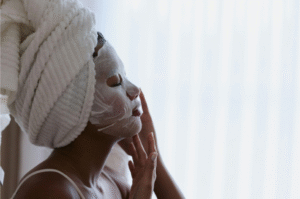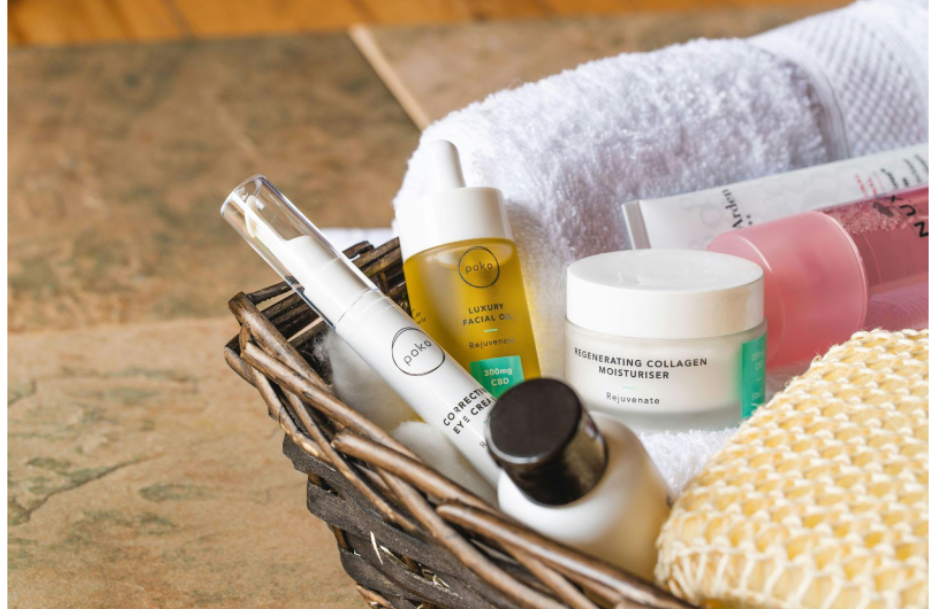Image from Unsplash
The wellness world has evolved. What used to be a niche category reserved for yoga lovers and juice cleanses is now mainstream culture. And nowhere is this shift more apparent than in the skincare aisle. More than just beauty routines, skincare has become a daily ritual in self-preservation, mental reset, and whole-body harmony. This trend has sparked a growing interest in ingredient-led formulas, with many turning to skin care products with argan as part of their daily wellness toolkit. Known for its hydrating and restorative properties, argan oil exemplifies the kind of plant-powered ingredient consumers now seek, pure, purposeful, and proven.
Clean Beauty: What Consumers Really Want
Today’s consumer doesn’t just want results, they want transparency, sustainability, and safety. That’s where plant-based skincare excels. Free from harsh synthetics, artificial fragrances, and questionable preservatives, these formulations cater to a more informed, mindful buyer.
And while “clean beauty” has become a buzzword, it has also become a benchmark. Consumers read labels. They recognize ingredients. They want to know what each component does and where it comes from. Argan, sourced primarily from the kernels of Moroccan argan trees, is not only effective but ethically appealing.
Rituals That Heal More Than Skin
Self-care isn’t selfish, it’s strategic. The act of applying skincare can offer more than just physical benefits. When ingredients are thoughtfully chosen, these routines become meditative. Imagine smoothing a botanical-rich oil into your face after a long day, inhaling the natural aroma, and watching your skin drink it in. It’s therapy, just without the couch.
Argan-based balms and serums add to this ritualistic approach. Their luxurious texture and subtle, nutty scent can elevate a routine to something more sacred. For those navigating stress, burnout, or sensory overload, skincare has become a way to recalibrate.
Why Argan Stands Out
Among the botanical stars, argan shines bright. Revered for centuries in Moroccan culture, it has earned its status as a multifunctional powerhouse. It hydrates without heaviness, nourishes without clogging pores, and supports both oily and dry skin types. This makes it a go-to for people seeking gentle yet effective care.
Beyond its physical effects, there’s something emotionally comforting about using a product rooted in tradition. Argan oil connects modern wellness seekers to an ancient lineage of beauty wisdom, something often missing in synthetic-heavy skincare products.
The Future Is Ingredient-Led
The rise of ingredient-first skincare means fewer products with more punch. Consumers are trading in 12-step routines for simplified, effective regimens that focus on quality over quantity. Instead of five different serums for hydration, tone, glow, firmness, and repair, they want one product that checks all those boxes, and plant-based blends are often up to the task.
Argan is a poster child for this shift. In blends with rosehip, calendula, or vitamin C, it provides a broad spectrum of skin-loving benefits. The days of chasing hype are waning. What matters now is whether it works, and whether it’s worth it.
The Science of Plant Power
Plant-based skincare isn’t about slapping a “natural” label on a jar. It’s grounded in real science. Many botanicals have been studied for their medicinal properties for centuries, and modern research continues to back them up. Argan oil, for example, is rich in fatty acids, vitamin E, and antioxidants, a combination that supports barrier repair, enhances elasticity, and fights oxidative stress.
This isn’t just good news for your complexion. According to the National Center for Biotechnology Information, plant-derived compounds in skincare may also help reduce inflammation and improve wound healing, making them more than cosmetic tools, they’re functional medicine in a bottle.
Sustainability and Ethical Sourcing
Wellness doesn’t stop at personal health. Today’s beauty buyers also care about planetary health. That means ethically sourced ingredients, recyclable packaging, cruelty-free testing, and fair labor practices are part of the purchasing decision.
Argan oil production has historically empowered Moroccan women through cooperatives that ensure fair wages and sustainable farming. Supporting such supply chains becomes a form of activism, each purchase a vote for a better industry.
Mindful Application: Slowing Down in a Fast World

Image from Unsplash
There’s a mindfulness element to plant-based skincare that synthetic-heavy regimens rarely offer. Whether it’s a cooling aloe mist or a rich argan cream, these products invite you to slow down, breathe deeper, and tune in. It’s tactile, sensory self-care that encourages presence, something in short supply in our screen-obsessed society.
By approaching skincare as a mindfulness ritual, users experience not only physical glow-ups but emotional grounding. It becomes a buffer against daily chaos, a pause button we didn’t know we needed.
Beyond Skin Deep: Whole-Person Wellness
More professionals in dermatology, mental health, and holistic medicine now acknowledge that what we put on our skin affects more than just our appearance. Skin is our largest organ, and it absorbs what we feed it.
Botanical skincare honors this truth. It recognizes that wellness is not compartmentalized. Nourishing your skin with argan, shea, or chamomile is also a signal to your body that it deserves care, respect, and restoration.
Plant-based skincare is more than a fleeting trend, it’s a transformation. With ingredients like argan leading the charge, consumers are discovering that wellness can be both simple and deeply effective. From its anti-aging powers to its mood-enhancing aroma, argan oil is proof that nature still knows best.
So whether you’re trying to heal irritation, prevent aging, or just carve out a little calm in your daily grind, turn to the plants. They’re ready when you are.

















